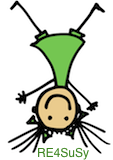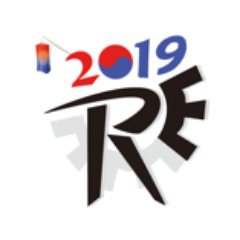 |  | |
| 8th International Workshop on Requirements Engineering for Sustainable Systems (RE4SuSy) Jeiju, South Korea, at RE'19, Submission: extended to Sept 8th, Contact The RE4SuSy workshop series has established a strong and growing research community around the different aspects of sustainability and how to support them in requirements engineering. Since requirements define how and what a software will do, we maintain that requirements engineering is the key point in software engineering through which sustainability can be fostered. Thus, the RE4SuSy workshop series is concerned with research on techniques, tools, and processes for sustainability through requirements engineering. Last year the workshop spanned a series of application domains and the discussion centered on the challenge of growing the research community and the potential steps required to achieve growth. Two main factors identified were the potential connection to empirical investigations on scientific software and the more systematic integration into computer science and software engineering education. This edition of the RE4SuSy workshop will build on the discussions from last year, and explore further application domains as well as the local perceptions of sustainability in the hosting country. Furthermore, we will pick up the conference theme and explore tackling sustainability challenges through collective intelligence. RE4SuSy is an interactive workshop: the contributors and prospective participants can engage well before the workshop date through on-line collaborative writing, discussion, and peer feedback. We aim to foster community growth by supporting new collaborations, holding preliminary case studies, discussions, and birds-of-a-feather group work. | #re4susy Tweets | |
Motivation
Software is a main driver for change in business and society, in changing life styles as well as business practices. Since requirements are the starting point for defining software, requirements engineering is the key point in software engineering through which sustainability can be fostered.
This workshop aims to provide an interactive stage for researchers and practitioners to share and exchange their latest work, to collaboratively work on expanding the body of knowledge in RE for sustainable systems, and to jump start new collaborations through the live creation of teams that commit to work together on concrete topics and in-workshop case studies and experiments.
From our discussions last year amongst a set of contributors from different application domains and backgrounds, two topics stood out in terms of growing the workshop community:
A potential opportunity is to demonstrate empirically the unsustainability of scientific software and link it to mechanisms for sustainability profiling underpinned by the principles set out in the Karlskrona manifesto with software and requirement engineering best practice.
A final topic for discussion was how to embed sustainability thinking into the computer science and software engineering curriculum and the need to ingrain sustainability as the core theme.
Finally, we plan to pick up the conference theme and explore tackling sustainability challenges through collective intelligence.
Objective
The objective of the workshop is to establish a community of researchers and practitioners interested in collaborating on the topic of sustainability in requirements engineering.
This community will expand and build on the work already initiated in the past editions of this workshop, such as the research agendas and the Karlskrona Manifesto on Sustainability Design (\url{www.sustainabilitydesign.org}). The workshop also aims to establish a common ground on the key topics of RE for Sustainability.
These objective shall be supported in the workshop through the following actions:
The workshop solicits a number of contribution types:
We encourage the submission of new and interactive formats, which can be presented as such at the workshop, and published in the workshop proceedings with textual descriptions. Please adhere to the standard RE'19 formatting. Important dates:
Davor Svetinovic, Khalifa University of Science and Technology Neil Chue Hong, Software Sustainability Institute, EPCC, University of Edinburgh Shola Oyedeji, Lappeenranta University of Technology Maria Spichkova, RMIT University Letícia Duboc, La Salle, Universitat Ramon LLull, Barcelona Timo Johann, University of Hamburg Joao Fernandes, University of Coimbra Guillermo Rodriguez-Navas, Bell Labs Sedef Akinli Kocak, Ryerson University Daniel S. Katz, University of Illinois Urbana-Champaign Coral Calero, Universidad de Castilla-La Mancha Tom Crick, University of Cardiff Patricia Lago, Vrije Universiteit Amsterdam Past workshops:
| ||